
Colorectal
Everyone loves a luau! The James Madison University Nursing Student Association hosted a “Senior Prom” on March 4. Attendees enjoyed lunch, dancing, games, and door prizes.


Colorectal
Everyone loves a luau! The James Madison University Nursing Student Association hosted a “Senior Prom” on March 4. Attendees enjoyed lunch, dancing, games, and door prizes.
Leigh-Anne Lees, Chair Community Relations Director, Valley Program for Aging Services
BJ Bryson, PhD, MSW (she/ her)
Associate Dean, JMU College of Health and Behavioral Studies. Professor of Social Work
Ashlie Heatwole
Communications Specialist, Bridgewater Retirement Community
Amy Homan DePoy, OT/L
Owner/Director, Cardinal Care LLC
Jeanine Maddox
Executive Assistant, Sunnyside Retirement Community
Susan Ribelin
Program Coordinator, Sentara RMH Safe at Home and Senior Advantage
Nancy Wayland
Executive Director, Sunnyside Retirement Community
Ageism is the discrimination or prejudice based on an individual’s age, particularly prejudice against older individuals. It manifests itself in numerous ways, including stereotypes, bias, and exclusion. Individuals of all ages encounter the effects of age-based biases in the workplace, media, and healthcare, impacting relationships, opportunities, health, and overall well-being. It is essential to recognize and combat ageism to create an inclusive and equitable society for people of all ages.
Discrimination based on age can be widespread in professional settings, leading to difficulties for senior employees in recruitment, advancement, and job retention. Older individuals seeking employment may encounter unfounded assumptions suggesting they are less adept with technology, less adaptable to change, or less open to acquiring new skills. These stereotypes are increasingly inaccurate and can hinder prospects for well-qualified older applicants. Combating ageism in the workplace requires fostering an inclusive culture, challenging stereotypes, and acknowledging individuals of all ages’ valuable contributions to the organization.
The media significantly contributes to the propagation of ageist stereotypes by depicting older individuals in narrow and
stereotypical roles, fueling societal biases and negative views about aging. Older people are frequently confined to specific roles, such as grandparents or retirees, overlooking the diversity and intricacies of their lives. Emphasizing physical and cognitive decline in portrayals reinforces the belief that aging inevitably leads to diminished vitality and well-being. When these stereotypes pervade the media, society accepts them as the norm. Combating ageism in the media necessitates a collaborative effort among creators, producers, and consumers to advocate for more accurate representations of aging. Through this concerted approach, the media can begin to reshape societal perceptions.
Ageism within the healthcare system can yield significant repercussions, influencing older individuals’ access to medical services and the quality of their treatment. Assumptions related to age, such as underestimating symptoms, delayed diagnoses, and restricted access to specialized care, can adversely affect the healthcare outcomes for older individuals. Additionally, age-related stereotypes may manifest in the communication dynamics between patients and healthcare providers. Acknowledging the varied needs and capabilities of older patients to guarantee that they receive tailored care and treatment to preserve or enhance their health and overall well-being is crucial.
See AGEISM, Page 6

I am bad at beauty routines. Before fancy occasions, my daughter often offers to do my makeup and I happily accept. She uses words like “sculpting” and “highlighting” that make me doubt I could recreate the look on my own. For best results, maybe I need an art degree.
Skin care is equally bewildering for me. During a recent trip to T.J. Maxx, I was trying to decide whether I needed Vitamin C Ceramide Capsules or Visible Difference Gel Hydrant Complexe Reconstituant. Reading the teeny, tiny typeface on the labels was not an option, obviously. I pondered a quick Google search but noticed the cash register line winding around the corner was 12 people deep and growing, so I made a quick decision to buy them both. I use these products regularly, but I couldn’t tell you why.
My friends are far more savvy. “Get a facial,” they offer. “With dermoplaning. It exfoliates the skin!” One of them dermoplanes at home and recommends micro-needling, also known as the Vampire Facial. (Now there’s an inspiring
image!) Yet another swears by chemical peels. I would rather change the sheets on every single bed in my house every day for a month than try these procedures, I tell them. They just laugh and say now they know what to get me for my next birthday.
Tammy Falter’s article in this issue provided some valuable knowledge on the subject. Now I know retinols help with fine lines and wrinkles. Vitamin C brightens up dark spots. Vitamin E locks in moisture. Those facials my friends talked about probably aren’t as scary as they sound. I may not be ready for an Esthetician yet, but I can buy some product at T.J. Maxx with a little more confidence next time.
I hope you enjoy Tammy’s article, as well as guidance on nutrition, property tax relief, over the counter supplements and much more in the pages that follow. Be sure to check out the event calendar, especially Casks for a Cause at Brothers Craft Brewing on March 15.
And, even if they eventually cause wrinkles, I wish you all the smiles you can manage this spring.
In my view, there is nothing more beautiful on a face than that.
Did you know that skin is the largest organ on the human body? There are many ways to age gracefully and beautifully; all skin is beautiful in its own individual way and requires regular maintenance, just like any other part of our bodies. As a registered esthetician, I have learned some tips and tricks to developing a beauty routine as one ages. All of these routines can help us learn to love the skin we are in for the wonderful span of our lives.
As we age and become wiser, our skin starts to become dysregulated; we begin growing more moles and developing what many people call “sun spots.” For those of us born before the early 2000’s, sunscreen was viewed as an option. Many people preferred baby oil and iodine for that quickly desired tan. Unfortunately, we were not as aware of the effects it had on our skin that have now begun to surface. Don’t fear if this was you: it’s never too late to begin applying sunscreen. For the best coverage and protection, you should look for sunscreens that have UVA and UVB coverage, are water resistant, and have an SPF of 30 or higher. Sunscreen should be applied 30 minutes prior to sun exposure and reapplied every two hours. That might seem like a lot of work, but ultimately, this routine will give you the best results.
Scheduling regular facials with an Esthetician is also a great way to expand your knowledge, become informed about new products, and treat yourself while
healing your skin. Many name brands like to throw fancy ingredients at you with a high cost, but most of them are unnecessary to achieve your skin goal. Cheaper is sometimes better, especially if you are trying to test new products and formulate your personal skin care regimen. I would advise any of my clients to start simple with a gentle cleanser, toner, and moisturizer.
Everyone has their own preferences on skin care, but not all skin types are the same. Acne-prone individuals may need to seek advice from a dermatologist; another option is to find products that work for their skin with guidance from your esthetician. For older age groups, discussing a retinol with your dermatologist is always a good idea. Retinols are known to help with fine lines and wrinkles as we age, as well as scarring and those pesky sun spots. Once you have purchased the basic skin care items, you can reach out to a dermatologist or esthetician for recommendations on additional serums. The combinations for serums seem endless and can be overwhelming for a first-timer. Some basics for beginners include hyaluronic acid for hydration, Vitamin C for brightening up dark spots, and Vitamin E to support your skin’s natural barrier as well as lock in moisture.
More complex procedures can also help you reach your personal skin care goals. A basic facial from a licensed esthetician will most likely include a relaxing face massage to promote healthy collagen stimulation, along with lymphatic drainage to reduce puffiness. This will be followed
March highlights National Nutrition Month, an annual campaign created by the Academy of Nutrition and Dietetics to highlight the importance of making informed food choices and developing sound eating habits. As nutritional requirements change throughout different life stages, familiarity with understanding of nutritional recommendations for older adults is important. Here are several reasons to place emphasis on nutrition education for older adults:
• Increased fracture rates
• Reduced mobility
• Limited appetite
• Declines in thirst perception
• Lower muscle mass
• Decreases in nutrient absorption rates
• Elevated risk for foodborne illnesses
Protein is a nutrient of particular importance as we age. Recent evidence suggests that for older adults, a higher protein intake of at least 1.0-1.2 grams per kilogram of body weight may be better, contributing to improved bone health, enhanced mobility, and the preservation of muscle mass. Examples of animal-based and plant-based sources of protein include:
• ½ salmon fillet: ~31 grams of protein
• 1 chicken thigh (no skin): ~29 grams of protein
• 1 cup cottage cheese: ~28 grams of protein
• 3-ounce lean beef: ~25 grams of protein
• 1 large egg: ~6 grams of protein
• 100g tempeh (fermented soybeans): ~20 grams of protein
• 1 cup lentils: ~18 grams of protein
• 1 cup edamame: ~18 grams of protein
The body continues to need micronu-
trients, small amounts of vitamins and minerals that help organisms function. An essential micronutrient is Vitamin B12, also known as cobalamin, which is involved in healthy nerve functioning, as well as DNA and red blood cell synthesis. As we age, our bodies become less efficient in absorbing dietary vitamin B12. It is estimated that up to 30% of adults over the age of 50 have trouble absorbing vitamin B12 found in food. Consequently, healthcare providers’ recommendations may encourage individuals over the age of 50 to primarily obtain Vitamin B12 from fortified foods, such as fortified breakfast cereals and nutritional yeast or dietary supplements, as these forms are better absorbed.
Dehydration is something you may not think about being related to nutrition. The sensation of thirst declines as we age, as does the kidney’s ability to retain fluid (and salt). For various reasons, dehydration is a significant risk among
older adults, which can induce fatigue and confusion, as well as increase the risk of urinary tract infections, kidney stones, gallstones, constipation, and even falls. Strategies to promote hydration include carrying bottled water, infusing water with sliced fruits to improve flavor, consuming foods rich in water, such as watermelon and cucumber, and consuming beverages with meals throughout the day.
Celebrate National Nutrition Month by making a few healthy adjustments under the guidance of your healthcare provider. These may include increasing your water intake, reducing sugar and salt in your diet, or swapping out sugary desserts with fruit, instead.
If you struggle with access to nutritious foods, get help by contacting the Blue Ridge Food Bank [540-248-3663 or 540-213-8400]. VPAS may also be able to help (540) 615-5341.
Walking into a pharmacy and perusing over-the-counter supplements can be overwhelming. These products may result in both health benefit and harm; therefore, it is imperative to understand any products that you plan to take and how they may interact with your prescribed medications. Additionally, it is important to remember that supplements are not as highly regulated as medications are by the Food and Drug Administration. Below is a discussion of some health problems and their commonly associated supplements.
Migraines
Coenzyme Q10, feverfew, magnesium, and riboflavin m4ential toxic effects on the liver.
Sleeplessness
Dosing a melatonin supplement (1-5mg) prior to bedtime may show a small benefit in reducing the time that it takes to fall asleep, although this is not recommended in those with dementia.
Ashwagandha, a plant extract, may be effective for insomnia.
Magnesium and Chamomile have gained popularity to help with sleep; however, data is inconclusive.
Ashwagandha may be effective for stress while chamomile might be helpful for generalized anxiety disorder.
St. John’s wort appears to be effective for mild and moderate depression, although this can interact with other medications.
Kava may have a small benefit on anxiety; however, it has been linked to a risk of severe liver injury.
Melatonin can also be used as an alternative anxiety-reducing option before surgery.
Based on a few small clinical trials, Willow bark extract may be beneficial for chronic low-back pain and osteoarthritis.
Moderate evidence shows Devil’s claw is useful for low-back pain and osteoarthritis of the spine, hip, and knee.
Glucosamine and Chondroitin are often thought to help with arthritis, but the evidence for benefit is inconclusive.
While Zinc, Vitamin C and Elderberry extract will not prevent colds, they may slightly reduce cold duration and severity.
Echinacea, thought to strengthen the immune system, has not been shown to shorten the length of a virus, but limited evidence suggests it might
prevent you from catching a cold. This information and more detailed explanations of dietary supplements are discussed on The National Center for Complementary and Inte -
grative Health’s website. If you are considering a dietary supplement, talk with your health care provider to determine what is best for your individual needs.
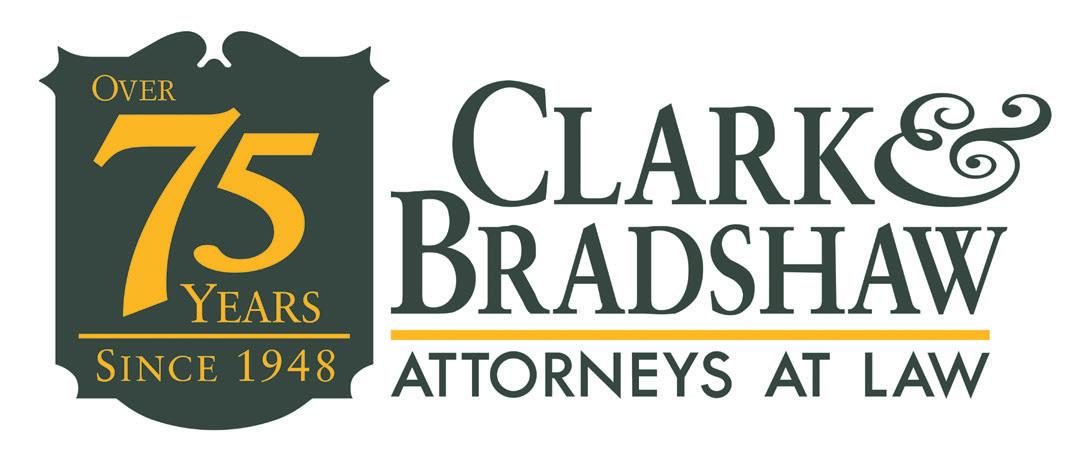
Is it time to review your estate plan? Every July 1st, the statutory law of Virginia changes. Moreover, courts review and interpret law ever day. You should review your estate plan to take advantage of changes in the law. Whether you are planning for the distribution of assets at your death, naming someone to act for you during periods of incapacity, needing guidance through the murky waters of applying for Medicaid, or handling the estate of a lost loved one, we are here to help. Set your mind at ease by planning ahead for you and your loved ones at our convenient wheelchair-accessible downtown Harrisonburg location.
KAREN L. ROWELL, ESQUIREEmail:
krowell@clark-bradshaw .comMATTHEW C. SUNDERLIN, CELA
Email:
sunderlin@clark-bradshaw .comCLARK & BRADSHAW, P.C.
92 North Liberty Street , Harrisonburg
Telephone: (540) 433-2601
Web: clark-bradshaw.com
We are a proud member of

In planning for retirement, there are numerous challenges and unknowns for which to prepare. One of the biggest surprises for most is inflation, particularly tax inflation. This is felt most especially in the taxation of real estate. Seniors residing in the Shenandoah Valley, facing escalating property taxes, have several avenues to explore for alleviation:
1. Tax Relief Programs: Local governments often offer tax relief initiatives tailored for seniors. These programs, contingent on factors like age, income, disability or military service, can significantly reduce property tax burdens. Seniors should reach out to their county or city authorities to de -
termine eligibility and to understand the application process. Where to find:
1. Search online by typing in your county/city of residence.
2. Look to the back of your real estate tax bill for your municipality’s phone and website address.
3. The last two pages of the 2023 Form 760 Virginia Resident Individual Tax Instructions.
4. Check out the Daily News Record for more information and updates. In the meantime, be prepared by gathering your previous year-end (2023) financial statements.
2. Downsizing: Consider trading in larger properties for smaller, more affordable homes. This can lower property taxes due to potentially lower property value. Such a move not only reduces taxes but could also cut maintenance and utility expenses.
3. Alternative Housing Options: Senior living communities or retirement villages with tax incentives could prove beneficial. Renting instead of owning is another avenue to explore, completely eliminating property tax obligations and possibly greater financial flexibility. Give serious consideration to co-habitation with family or friends.
4. Appealing Assessments: Seniors can challenge property tax assessments if they perceive them as unfairly high. Collecting evidence of comparable property values or demonstrating mitigating factors like structural issues can support a reduction in assessed value. Seeking guidance from tax professionals or real estate experts can streamline this process.
5. Supplemental Income: Additional income streams help to offset higher property taxes. Renting out spare rooms and/or taking up part-time
employment may be viable options.
6. Asset & Investment Analysis: Now may be the time for a second (or first) opinion on how one’s investments and assets are being utilized to fund retirement. This should be done with great care and caution and, if appropriate, include the involvement of trusted confidant(s) in the meeting. Leveraging the equity in the property itself is usually a last resort, but it is a resort nonetheless. Best approach is a process of elimination so that the final decision is an informed and educated one.
In summary, area seniors facing escalating property taxes can pursue various strategies to reduce financial strain. By exploring the avenues cited, hopefully, seniors can navigate the challenges of rising property taxes while continuing to enjoy the beauty and tranquility of living in the Shenandoah Valley.
Colorectal Cancer Awareness Month is observed in March to highlight the impact of screening for colorectal cancer, as well as promote healthy habits that can decrease a person’s risk of developing cancer of the colon, rectum, or anus.
Colorectal cancer is on the rise in all age groups. The American Cancer Society (ACS) estimates that in 2020 we saw 147,950 new cases of colorectal cancer diagnosed within the U.S., with 12 percent in individuals younger than age 50. It is the second most common cause of cancer death in the United States. In Harrisonburg/Rockingham County, cancer is the leading cause of death with
mortality rates of colorectal cancer being among the highest.
Medical professionals are urging everyone to talk to their doctors about any suspicious symptoms, such as constipation, rectal bleeding, or sudden changes in bowel movements.
Are you at risk?
Age increases the risk of colorectal cancer, as it is much more common after the age of 50. A medical or family history of inflammatory bowel disease, adenomatous polyps, or colorectal cancer also increases the risk. Within the U.S., more than half of all colorectal cancers can be attributed to lifestyle factors, such as unhealthy diet, low physical activity, high alcohol consumption, and smoking (cigarettes and e-cigarettes).
The American Cancer Society recommends regular screenings for people at average risk ages 45 to 75 years. Beyond age 75, screening decisions are made with considerations given to prior screening history, overall health, life expectancy, and preference.
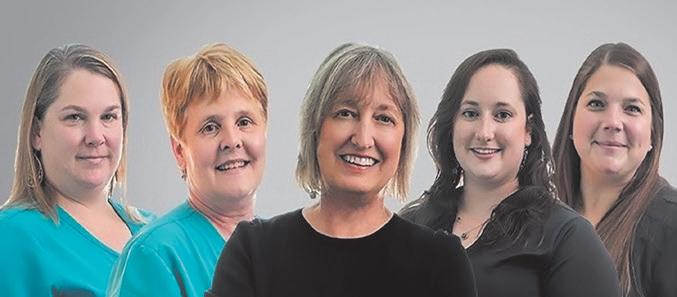
Screenings can find precancerous growths/spots in the colon or rectum that can be removed before they turn cancerous. The main types of screening tests are stool-based tests and tests that look directly inside the colon and rectum-like a colonoscopy. Your doctor can help you decide which type of screening test is right for you. Remember that any discomfort or embarrassment from the screening process is temporary. Detecting problems early could save your life.
A colonoscopy exam is when a long flexible tube (colonoscope) is inserted into the rectum with a tiny video camera at the tip, which allows the doctor to detect any channels inside the entire colon. The exam process typically takes
30 to 60 minutes and is generally repeated every 10 years if nothing is found, and you don’t have an increased risk of colon cancer.
The pros:
• Colonoscopy is one of the most accurate tests currently available.
• The doctor can view the entire colon and rectum.
• If found, polyps and tissue samples can be removed during the exam.
The cons:
• Cleaning of the colon is required before the test (laxatives or enemas).
• Diet change and medication changes may need to occur before the exam.
• Someone will need to drive you home.
A stool-based test uses a sample of your stool (feces) to look for changes within cells that may indicate cancer or precancerous conditions. For this test, you would collect a sample of your stool at home and send it for laboratory testing.
The pros:
• It does not require insertion of a scope or sedation.
• You can continue your normal diet and medication routines.
• It can be done in the comfort of your own home.
The cons:
• Test results are less accurate.
• If abnormalities are found, additional tests may be needed.
• It may give a false-positive result.
Colorectal cancer doesn’t always cause symptoms, especially in the early stages. The earlier colorectal cancer is detected, the easier it is to treat. This is why getting screened regularly for colorectal cancer is so important. Choosing a screening test may not be an easy decision, but it’s a potentially lifesaving one. Consult with your doctor about your colon cancer screening options.
Alzheimer’s Caregiver Support Group
First Friday of the month | 10:30 am | Community Mennonite Church, Harrisonburg Second Thursday of the month l 1 pm l Summit Square, Waynesboro. Register at vpas.info/caregiver-support or call VPAS at 540-615-5341.
Ongoing Caregiver Support Groups
Fourth Tuesday of the month | 3 pm | Sunnyside Retirement Community, Harrisonburg Register at vpas.info/caregiver-support or call VPAS at 540-6155341.
Virtual Caregiver Support Groups
Mondays at 3 pm or Wednesdays at 10:30 am Register at vpas.info/caregiver-support or call VPAS at 540-615-5341.
Memory Partners — A safe space for dementia care partners to attend together
First Thursday of the month |1011:30 am | Massanutten Regional Library, Harrisonburg Second Thursday of the month I 10-11:30 am l Waynesboro Public Library, Waynesboro Register at vpas.info/caregiver-support or call VPAS at 540-615-5341.
A Matter of Balance
Wednesdays, March 13-May 1 l 1-3 pm l Grottoes Town Hall, Grottoes Register at vpas.info/health-and-fitness or call 540-615-5341.
Casks for a Cause
March 15 l 1-10 pm l Brothers Craft Brewing, Harrisonburg Get your green on and join us for a pint at Brothers Craft Brewing. Also on tap: a silent auction of a framed event poster, food, live music, special raffles. All proceeds support VPAS Meals on Wheels. For more information, call Brothers Craft Brewing at 540.421.6599.
Tai Chi for Arthritis and Fall Prevention
Tuesdays and Thursdays, April 2-May 23 l 11 a.m.-12 p.m. l Plains District Community Center, Timberville Register at vpas.info/health-and-fitness or call 540-615-5341.
Art and Care
April 4, May 2, and June 6 l 2-3 pm l Waynesboro Public Library, Waynesboro Call (540) 942-6746 for more information. Game Day April 4 and April 18, May 2 and May 16, June 6 and June 20 l 2-3 pm l Waynesboro Senior Services, Waynesboro Register at vpas.info/recreation or call 540-949-7141.
Art and Ed for Dementia Care Partners
April 10, June 12, and August 14 l 2-3 pm l Bridgewater Church of the Brethren, Bridgewater Register at vpas.info/ caregiver-support or call 540-615-5341. Walk With a Doc
April 13: TBD May 11: Kat Huntley, Clinical Dietitian June 8: Austin White, Physical Therapist Join Sentara providers for a short health topic and walk
around the paved, hospital loop. All ages and fitness levels welcome. Park in Lot D and gather behind the hospital. Meets the 2nd Saturday of each month, 9am.
Ready, Set, Grow! Gardening Workshop
April 15 l 2-3 pm l Price Rotary Senior Center, Harrisonburg To register, visit vpas.info/education or call 540-6155341.
Confident Caregiver Circles
Mondays, April 22-May 13 l 3-4:30 pm l Bridgewater Retirement Community, Bridgewater Visit vpas.info/caregiver-support or call 540-615-5341.
Your Health Now: 10 Symptoms
Not to Ignore — Sentara RMH Senior Advantage
April 26 l 1:00 pm l Sentara RMH Medical Center’s Hahn Building conference rooms, Harrisonburg Call 540-5647001 to register.
Dealing with Dementia Workshop
April 30 l 12:45-4:45 pm l Massanutten Regional Library, Central Branch, Harrisonburg May 14 l 12:00-4:00 pm l Waynesboro Public Library, Waynesboro Register at vpas.info/caregiver-support or call 540-615-5341.
Your Health Now: Let’s Talk
About Stroke — Sentara RMH Senior Advantage
May 9 l 9:00 am l Sentara RMH Medical Center’s Hahn Building conference rooms, Harrisonburg Call 540-564-7001 to register.
Your Health Now: Maintaining Your Balance and Mobility —
Sentara RMH Senior Advantage
Sentara RMH Medical Center’s Hahn Building conference rooms, Harrisonburg Call 540-564-7001 to register.
Reason to Ride
June 1 l Registration at 9 am, kickstands up at 11 am l Weavers Mennonite Church, Harrisonburg VPAS Motorcycle and Bicycle Benefit Ride with special guests Hellfighters of the Shenandoah Valley. $25 per rider, $10 additional for extra motorcycle rider. Breakfast items, lunch included. Door prizes and 50/50 drawing. Proceeds support VPAS Senior Transportation Program. For more information, call Gerry Lehman at 540810-4300.
Virtual Dementia Tour – An
In-Person Dementia Simulation
June 8 l Begininng at 9 am and offered throughout the day l Weavers Mennonite Church – Harrisonburg Register at vpas.info/caregiver-support or call 540-615-5341.
Any reader interested in attending an event should call the contact person for that event to determine if registration and fees are applicable. All readers and encouraged to call to confirm that the event is still taking place prior to the event date. To contribute information to the Living Longer, Living Well Community Calendar, please email Leigh-Anne Lees at leighanne@vpas.info.


Ageism FROM PAGE 2
Encountering ageism can have adverse consequences on mental health, resulting in feelings of isolation, diminished self-esteem, and a reduced quality of life for older individuals. The sense of isolation often leads to social exclusion and declining social engagement. Exposure to ageist attitudes may lead individuals to internalize negative stereotypes about aging, impacting self-esteem and significantly influencing their identity and sense of value. The cumulative impact of ageism on mental health can contribute to an overall decrease in quality of life, with research indicating that stress associated with ageism may elevate the risk of health problems. Promoting open dialogue, challenging stereotypes, and establishing supportive networks can play a pivotal role in enhancing the mental well-being of older individuals.
We are aging every day, and as we progress through the distinct stages of life, each phase offers particular growth opportu-
Skin FROM PAGE 2
by a mask that suits your skin type. Facials can also include more complex procedures; chemical peels are one of my favorites, which address acne prone skin, have anti-aging benefits, and strengthen your natural skin barrier. Micro-needling is another procedures that stimulates your skin’s healing process and aids in collagen and elastin production. Finally, cosmetic
nities. Dr. Tracey Gendron is an internationally recognized gerontologist with 30 years of experience, backed by research. In her book, Ageism Unmasked: Exploring Age Bias and How to End It, she shares, “The information age has added new layers to the ever-evolving story of aging and ageism. With its concomitant advances in medical technology and pharmacological interventions, the digital age has provided unprecedented opportunities to enrich older people’s lives.” Tracey speaks nationwide, emphasizing the importance of owning your age and all aging qualities.
Ageism operates subtly yet significantly influences our interactions, perceptions, and opportunities. Recognizing its presence and proactively challenging biases based on age can be crucial in fostering a more compassionate and inclusive society. This involves acknowledging and celebrating the value of individuals, emphasizing the need to create an age-inclusive world. Embracing the diversity of ages establishes the groundwork for a community where everyone can thrive.
procedures are available if you desire but are not always necessary to achieve the radiant look you want.
I will leave you to ponder this advice: love the skin you were born with and embrace the aging process…but seek an expert’s help to do it as gracefully as you wish.
Contact Jillian Lynch at 540-574-6281 or jlynch@dnronline.com. Follow Jillian on LinkedIn https://www.linkedin. com/in/jillian-l-a1378b106/.




Do you have dentures that don’t work?
Tired of never ending teeth repair?
Are you missing one or more teeth?
Are you losing your facial shape?
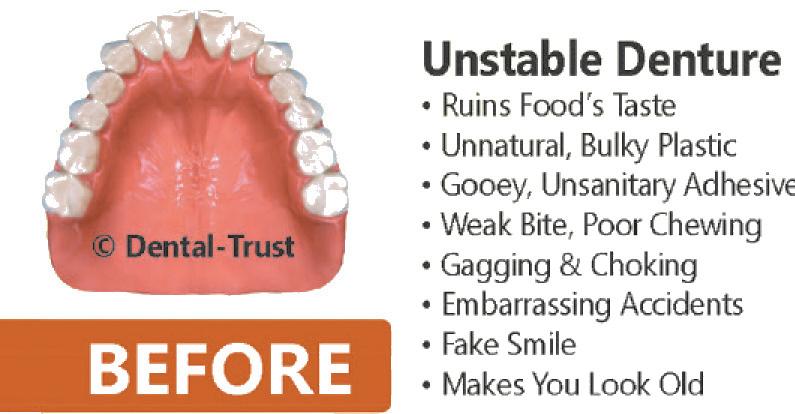


“I feel good about the work being done.
It was what I needed in order to eat. I looked around and Smile for Life had the best reviews for implants. I wanted to have implants because my father had standard dentures and they did not fit right, so he had trouble with them. Now I am happier than a fuzzy bear that fell in a beehive. Before treatment I had problems eating and then began losing teeth/ fillings, the normal stuff that happens when you get older.
I decided that getting them all removed instead of one was the better option. Everyone says my teeth look very good and gives me compliments. I will tell you that the staff here is the best dentist office staff I have ever had in my life. I would recommend this treatment to others because the staff and doctors are awesome!”
- Orion P. All-on-4

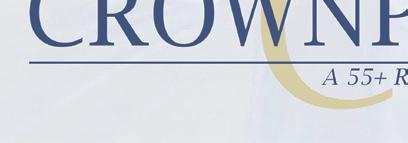
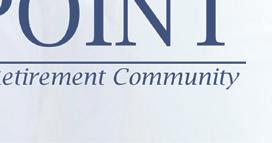


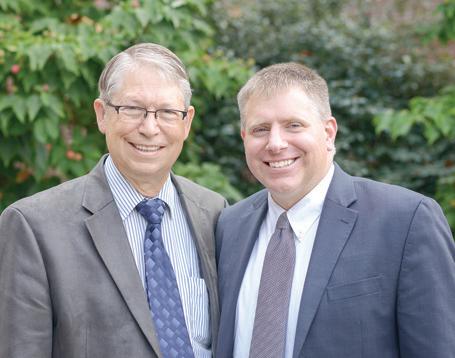

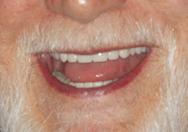



Charles D. of New Market survived testicular cancer only to be living in constant pain. He felt as though he were walking on pins and needles, becoming weaker and weaker every day. "I was beginning to be worried that one day I would be wheelchairbound."
Nearly half of patients who undergo chemotherapy will develop Chemotherapy-Induced Peripheral Neuropathy, or CIPN.
Chemo meds travel throughout the body and attack cancer cells; sadly they can also cause severe damage to healthy nerves.
The most common symptoms of CIPN include:
pain, tingling, burning, weakness, or numbness in arms, hands, legs, or feet
sudden, sharp, stabbing or shocking pain sensations loss of touch sensation clumsiness and trouble using hands to pick up objects or fasten clothing loss of balance and falling
When asked how CIPN was affecting his quality of life, Charles responded, "It was difficult to even walk up and down stairs and do other things we usually take for granted."
Fortunately for Charles, Acupuncturists Berry and Amara of Acupuncture Medical Center are using the time-tested science of Acupuncture and technology originally developed by NASA that assists in increasing blood flow and expediting recovery and healing to treat this debilitating disease. After a series of treatments, Charles was taking stairs with stride!
"We have a house on the Chesapeake and this morning I walked right down the stairs and got in the car," Charles shared. "I remember thinking 'that's become mighty easy for me', I didn't have to hold on to the handrail or anything! It's life changing to have this mobility back!"
For over 15 years, Acupuncturists Amara and Berry have been reversing the effects of CIPN and other varieties of Peripheral Neuropathy (including that caused by diabetes) without invasive surgeries or medications that come with uncomfortable side effects.
Patient success stories can be viewed on their website, AcuMedCenterVA.com, or you can find their Google Reviews online.
Acupuncturists Berry and Amara are now accepting new patients, but only for a limited time. To determine whether or not you are a good candidate for their personalized treatments an initial consultation is required. Call (540) 217-2783 schedule!

If you've recently beat cancer only to find that you're living in constant pain and discomfort or you're struggling with the same symptoms as a result of either Idiopathic Neuropathy or Diabetic Peripheral Neuropathy, Acupuncturists Berry, Amara and the incredible team at Acupuncture Medical Center can help!








At Bridgewater Retirement Community, we offer abundant amenities, craft scrumptious cuisine, and provide excellent support so you can live your purpose. That's our purpose—to help you make the most of every day. It's how we've earned regional, state, and national recognitions, including “Best Continuing Care Retirement Community” from U.S. News. Come see for yourself what it means to live well.